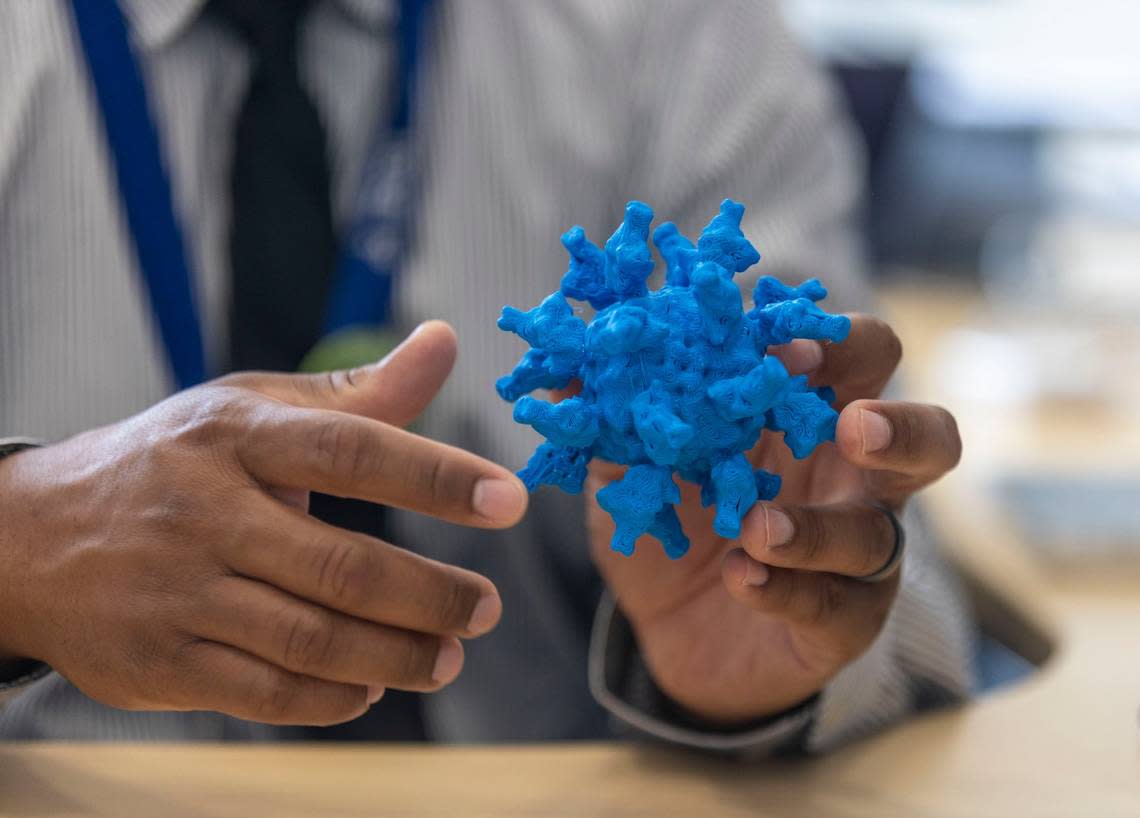Coronavirus updates for Oct. 19: Here’s what to know in South Carolina this week

We’re tracking the most up-to-date information about the coronavirus and vaccines in South Carolina. Check back each week for updates.
More than 3,000 COVID cases in SC last week
The S.C. Department of Health and Environmental Control on Tuesday, Oct. 18, reported 3,086 COVID-19 cases and 18 coronavirus-related deaths for the week ending Oct. 15.
The counts include probable and confirmed coronavirus cases and deaths.
An estimated 1.7 million coronavirus cases have been reported in South Carolina, and more than 18,500 people have died of the virus since March 2020, according to state health officials.
Data shows COVID-19 cases are down 2% compared with this time last week, with hospitalizations falling about 4%. As of Oct. 15, an average of 238 people in the state were hospitalized with the coronavirus, including 40 patients being treated in intensive care and 11 patients on ventilators, the latest data shows.
The omicron subvariant BA.5 accounted for nearly 72% of coronavirus strains identified in South Carolina for the week of Oct. 1, followed by subvariant BA.4.6 (17.2%), according to the latest data. The DHEC’s Public Health Laboratory conducts sequencing on randomly chosen samples as part of nationwide efforts to find out about new strains of the virus, the agency’s website reads.
About 53% of South Carolinians eligible to receive a coronavirus vaccine are fully vaccinated against COVID-19, and just over 61% have received at least one dose, state health data shows.
Will you develop long COVID? Study explores likelihood of long-term symptoms
After battling a COVID-19 infection, what are the odds that you’ll develop lingering symptoms — better known as long COVID?
A study led by Scottish researchers sought to answer this question and determine a person’s chances of developing post-COVID conditions that can stick around for months at a time, McClatchy News reported.
For the analysis, researchers examined more than 96,000 people living in Scotland who were exposed to COVID-19 versus those who weren’t. They found that 48% of study participants reported having persistent symptoms between six and 18 months after a confirmed COVID-19 infection.
Of that group, 42% said they had only partly recovered from the virus.
The findings were published in the journal Nature Communication on Oct. 12
“While most people recover quickly and completely after infection with COVID-19, some people develop a wide variety of long-term problems,” lead researcher and public health professor Jill Pell, of the University of Glasgow, said in a statement.
To learn more about the study, continue reading here.
Lying about COVID? Many Americans did so to feel ‘normal’ amid pandemic, study finds
Many Americans have admitted to lying about COVID-19.
The lies include misleading others about whether they were sick and if they were following recommended public health guidance to reduce the spread of the virus, according to the study published Oct. 10 in JAMA Network Open.
The most common reasons 42% of Americans reported telling lies included desiring to feel “normal” and wanting to “exercise personal freedom,” the researchers found.
In the study, 1,733 adults in the U.S. were surveyed from Dec. 8 to Dec. 23. During this time, the coronavirus omicron variant had recently emerged and the country’s COVID-19 death toll exceeded 800,000, according to the Centers for Disease Control and Prevention. The toll stands at more than 1 million deaths as of Oct. 13.
Study participants responded to a list of nine COVID-19 related behaviors they may have lied to others about. About 4 in 10 of those surveyed — 721 participants — said they had misled others about at least one of the listed behaviors, the research found.
Read the full report here.
